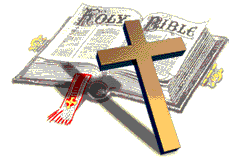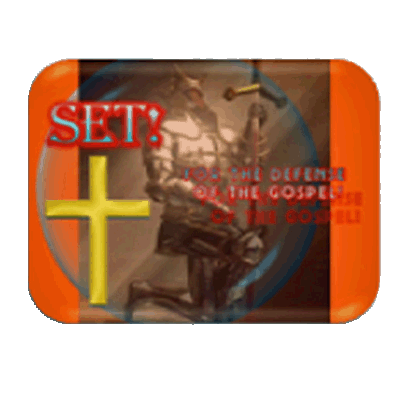Every word of God is tested; He is a shield to those who take refuge
in Him. Do not add to His words Lest He reprove you, and you be proved
a liar. To the law and to the testimony! If they do not speak according
to this word, it is because there is no light in them.
(Proverbs 30:5-6, NASB; Isaiah 8:20 NKJV)
Exegesis -- from the Greek: ek + ago (lead out). An Exegete is one who seeks to lead the truth out of the Scriptures rather than read his opinions into the Scriptures.
An Introduction to the Whole Matter...
Gaining a better understanding of the Bible is the goal of Pastors, Theologians, and “lay” people everywhere. We added quotations because a lack of professional status in the Church is no reason for a lack of real understanding in the Bible. This article, The Exegete, seeks to promote greater knowledge of the scripture regardless of whether one is a member of clergy, laity, or whatever.
Because of this, this article will not burden you with a lot of fifty cent, twelve syllable words; at least not without explaining them first. The goal of this article is Biblical educa-tion and edification, not impression building or intellectual elitism.
Many Biblical interpreters approach Bible study from a variety of viewpoints. Some hold that the Bible is mere myth that provides an explanation for the mores and traditions of Biblical era cultures. According to this view, the interpreter attempts to understand the Bible by uncovering its “myths.” Others hold that the Bible is a mixture of truth and fiction, and that the task of the interpreter is to provide a means of discrimination between the two. Still others hold that the scriptures are completely true, without any mixture of error. This article holds to the latter, Biblically conservative and orthodox view. Future articles will go into more details about the different views and the consequences of each view on Bible study.
As stated in the definition at the beginning of this article, the exegete seeks to lead the truth out of the scripture rather than read his opinions into the scripture. At the core of proper exegesis then is a question, “What was the meaning of this passage as it relates to its original audience?” Since this article begins from a conservative orthodox standpoint, it will not question the truthfulness of the Bible. What this article will question is our understanding of the scripture. That is, our assumptions about the Bible will be tested, not the teachings or the statements of the Bible itself.
In upcoming articles, we will explore the different aspects of exegetical study, such as using the original texts with Greek and Hebrew study tools, examining the various con-texts of the scriptures (grammatical, historical, literary, etc.) and we will look at the types of books of the Bible (prophetic, law, history, etc.). We will also look at some of the deeper philosophical and practical questions that arise from exegetical study. We will explore ideas of subjectivity and objectivity, as well as the problem of certain knowledge (how do you know that you know?) A word of warning, though — not every question has an immediate answer. Some require greater research than what exists today; other questions require the sovereign hand of God to illuminate the exegete. In any case, we will keep asking questions, and seeking answers.
That is all for now. In the next article, we will get into some basics of exegetical study.

The Exegete
with Ron Thompson

